In today’s fast-paced world, personal hygiene is paramount, and many of us believe that more frequent showers are synonymous with better cleanliness. However, taking two or more showers a day can have unexpected effects on your body. From changes in your hair and skin to potential impacts on your reproductive health, it’s important to understand how over-showering might influence your overall well-being.
In this comprehensive guide, we will explore the potential downsides of showering too often, with a focus on key areas such as hair greasiness, skin dryness, dandruff issues, increased skin sensitivity, difficulty in detangling hair, and even reproductive health concerns. Backed by insights from experts and research from reputable sources like WebMD and Healthline, this article aims to provide a balanced view on whether taking multiple showers a day is beneficial or potentially harmful.
Is It Bad To Take Two Or More Showers A Day?
Excessive Showering and Greasy Hair: Why Your Hair May Look More Oily
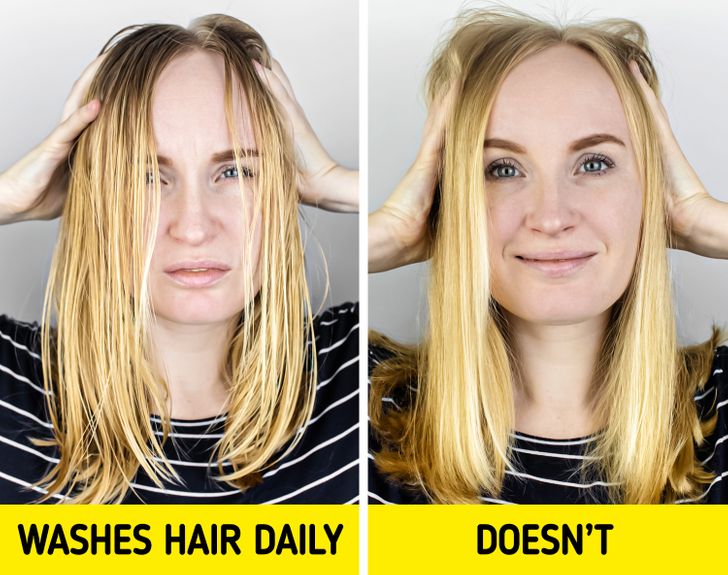
Frequent washing can strip your scalp of natural oils, which are essential for maintaining a healthy balance. When these oils are removed, your scalp may compensate by producing more sebum, leading to an oily or greasy appearance. This cycle can create a constant need to wash your hair, making it challenging to achieve that naturally balanced, healthy look.
Key Points:
- Sebum Overproduction: Over-washing can trigger your scalp to produce excess sebum, resulting in greasy hair.
- Impact on Hair Texture: Constant removal of natural oils can lead to hair that looks flat and lacks shine.
- Recommended Practices: Consider washing your hair every other day or using gentle, sulfate-free shampoos to maintain natural oil balance.
For more detailed information on scalp health and oily hair management, visit Healthline’s guide on hair care.
Dry and Irritated Skin: How Frequent Showers May Leave Your Skin Feeling Dry
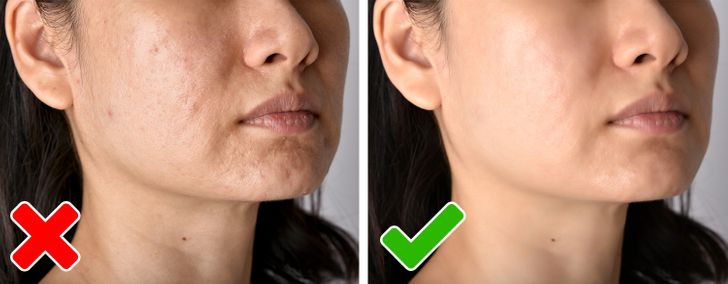
While showering is essential for cleanliness, taking multiple showers a day can strip your skin of its natural moisture. This loss of moisture can lead to dryness, irritation, and even premature aging. Hot water, in particular, can exacerbate these effects by further depleting your skin’s hydration.
Important Considerations:
- Moisture Loss: Excessive showering, especially in hot water, can remove natural oils that protect your skin, leading to dryness.
- Risk of Skin Irritation: Dry skin is more susceptible to irritation, itchiness, and conditions like eczema.
- Tips for Hydration: Use lukewarm water, limit shower duration, and apply a moisturizer immediately after bathing to lock in moisture.
For further reading on maintaining healthy skin, check out Mayo Clinic’s skincare recommendations.
Increased Dandruff: The Link Between Frequent Showers and More Dandruff Than Usual
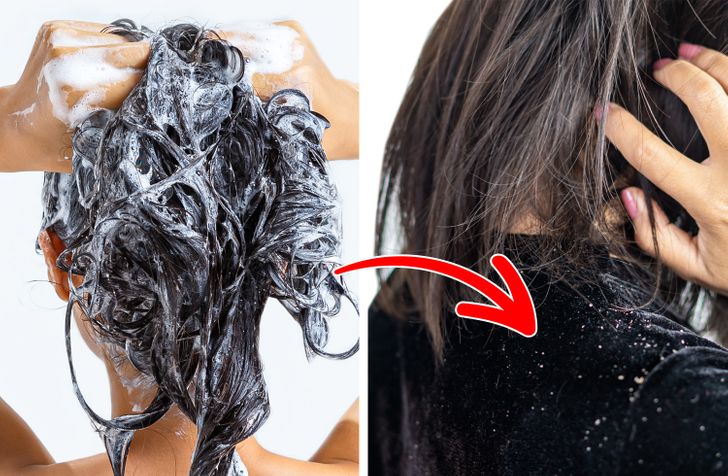
Dandruff is a common scalp condition that can be aggravated by over-washing. When the scalp is repeatedly stripped of its natural oils, it may become dry and flaky. This not only leads to an increase in dandruff but can also cause discomfort and embarrassment.
How It Happens:
- Disruption of Scalp Balance: Frequent washing can disrupt the natural balance of oils on your scalp, leading to dryness and flakiness.
- Inflammation and Irritation: Constant washing may irritate the scalp, contributing to inflammation and dandruff formation.
- Preventive Measures: Consider using specialized anti-dandruff shampoos and avoid overly hot water during showers to reduce irritation.
For a more comprehensive understanding of dandruff and its treatments, visit WebMD’s dandruff guide.
Heightened Skin Sensitivity: How Multiple Daily Showers Can Make Your Skin More Sensitive
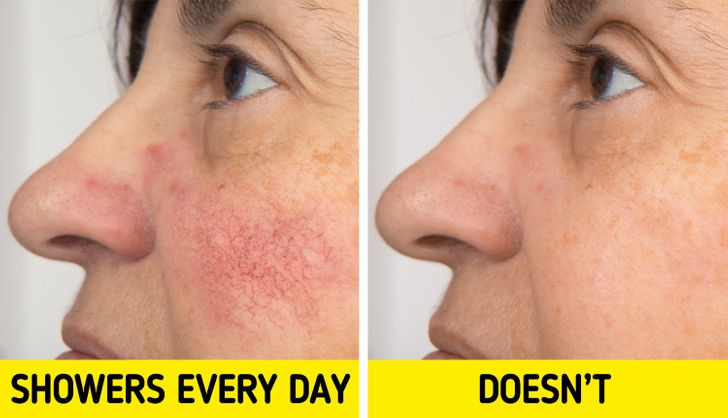
Taking multiple showers a day, especially with the use of harsh soaps or hot water, can make your skin more sensitive. This heightened sensitivity may lead to an increased risk of allergic reactions, irritation, and even breakouts. Sensitive skin often requires a more gentle approach to cleansing and moisturizing.
What to Watch For:
- Chemical Irritants: Frequent exposure to soaps, shampoos, and other cleansing agents can strip away protective lipids, making your skin vulnerable.
- Environmental Factors: Repeated exposure to hot water and steam can damage the skin barrier, leading to increased sensitivity.
- Sensitive Skincare Routine: Opt for hypoallergenic and fragrance-free products, and consider reducing the number of showers to prevent over-stimulation of the skin.
For expert advice on managing sensitive skin, explore articles from The American Academy of Dermatology.
Difficult Hair Detangling: Why Your Hair Might Be Harder to Manage with Excessive Showering
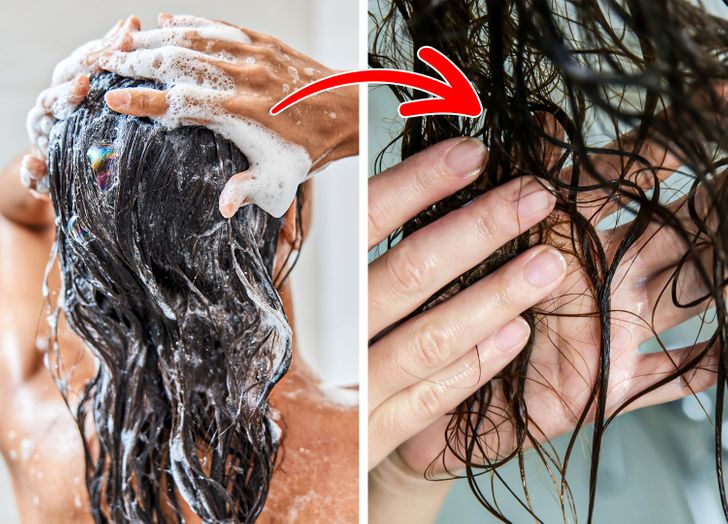
While a daily shower may seem like a perfect way to keep your hair clean, it can sometimes result in hair that is more difficult to detangle. Over-washing can lead to the weakening of hair strands, making them more prone to tangling and breakage. Additionally, the loss of natural oils can leave your hair feeling dry and brittle, further complicating your hair care routine.
Key Concerns:
- Weakened Hair Structure: Over-showering can strip essential oils that protect the hair, causing it to become brittle and tangled.
- Increased Frizz and Breakage: Dry, over-washed hair is more susceptible to frizz, making detangling a challenge.
- Hair Care Solutions: Use a wide-tooth comb on damp hair, apply leave-in conditioners, and consider reducing the frequency of washes to maintain a healthier hair texture.
For more hair care tips and detangling techniques, refer to Healthline’s hair care tips.
Reproductive Health Concerns: Could Frequent Showering Affect Your Reproductive System?
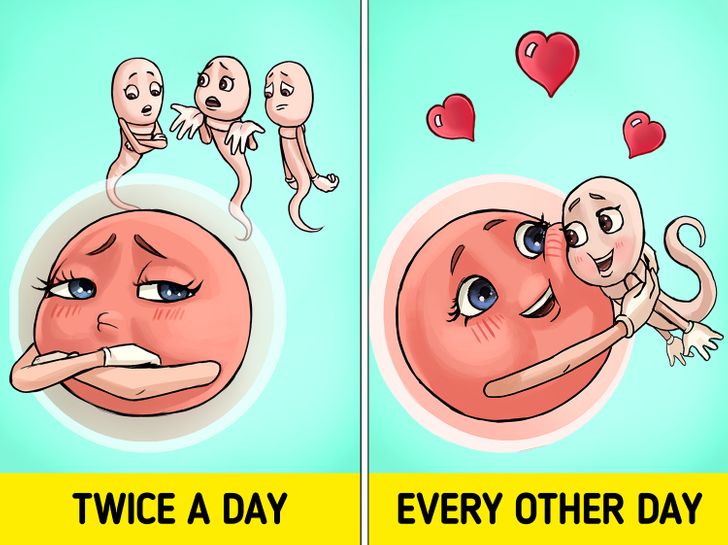
Although it may seem unrelated, there is emerging evidence suggesting that over-washing, particularly in sensitive areas, might have an impact on reproductive health. Excessive use of antibacterial soaps and cleansers can disturb the natural balance of bacteria and pH levels, potentially leading to irritation and other health issues.
Potential Risks:
- Disruption of Natural Flora: Overuse of strong cleansers can upset the natural microbial balance, potentially increasing the risk of infections or inflammation in reproductive areas.
- Hormonal Imbalances: Some studies have hinted that chemicals in certain personal care products may interfere with hormonal regulation.
- Safe Practices: Limit the use of harsh products and consider gentle, pH-balanced cleansers to protect the delicate ecosystems of your reproductive system.
For more information on reproductive health and safe personal care practices, check out resources from the National Institutes of Health (NIH).
Balancing Hygiene and Health: Practical Tips for Optimal Showering Habits
While the drawbacks of taking multiple showers a day are important to consider, it’s equally essential to find a balance that maintains personal hygiene without compromising your hair, skin, or overall health. Here are some practical tips to optimize your showering routine:
1. Choose the Right Temperature:
Avoid overly hot showers. Lukewarm water is less likely to strip your skin and hair of essential oils. Opt for a comfortable temperature that cleanses without causing damage.
2. Use Gentle, pH-Balanced Cleansers:
Invest in mild shampoos and body washes that are free from harsh chemicals. Look for products labeled as pH-balanced, which are designed to maintain the natural acidity of your skin and scalp.
3. Limit Shower Duration:
Long, drawn-out showers may seem relaxing, but they can exacerbate dryness and irritation. Try to limit your shower time to 5-10 minutes to minimize the risk of stripping your skin and hair.
4. Moisturize Immediately After Showering:
Lock in hydration by applying a good quality moisturizer or leave-in conditioner immediately after your shower. This helps seal in moisture and protect your skin and hair from dryness.
5. Alternate Showering Routines:
If you prefer to shower multiple times a day, consider alternating between full showers and quick rinse-offs. For example, you might take a full shower in the morning and a lighter rinse in the evening to refresh without overdoing it.
6. Protect Sensitive Areas:
When it comes to sensitive areas, use specially formulated, gentle cleansers. This is particularly important for maintaining the natural balance of your reproductive system.
7. Listen to Your Body:
Everyone’s skin and hair are unique. Pay attention to how your body responds to your showering routine and adjust accordingly. If you notice increased dryness, irritation, or other issues, it might be time to scale back.
Expert Insights: What Dermatologists and Health Experts Say
Numerous dermatologists and health experts warn against the potential pitfalls of excessive showering. In an article from Mayo Clinic, experts emphasize that while maintaining hygiene is critical, over-washing can lead to skin and hair problems. Similarly, WebMD highlights that the balance of natural oils is essential for maintaining healthy skin and hair.
Additionally, studies published in journals accessible via PubMed reveal that overuse of antibacterial products can disrupt the skin’s microbiome, potentially contributing to irritation and inflammation. These insights reinforce the need for moderation and mindful product selection in your daily hygiene routine.
Conclusion: Finding the Right Balance for Optimal Health
While taking two or more showers a day might seem like a proactive approach to cleanliness, it’s clear that there can be unintended consequences on your hair, skin, and overall health. From increased greasiness and dryness to heightened skin sensitivity, more dandruff, and even potential reproductive health concerns, the evidence suggests that moderation is key.
By understanding the science behind your body’s natural oils and the importance of a balanced hygiene routine, you can make more informed choices. Incorporate the practical tips provided—such as using lukewarm water, choosing gentle cleansers, and moisturizing immediately after showering—to protect your skin and hair while still enjoying the benefits of a refreshing shower.
Ultimately, the goal is to maintain optimal hygiene without compromising the health of your hair, skin, or internal systems. Listen to your body, adjust your habits as needed, and consult with healthcare professionals if you have specific concerns about how your showering routine may be affecting your health.
For further reading and expert advice on maintaining a balanced hygiene routine, explore additional resources at Healthline and WebMD.
Embrace a mindful approach to showering that respects the natural balance of your body. With the right practices, you can enjoy the benefits of cleanliness without experiencing the negative side effects of over-washing, ensuring you stay healthy, vibrant, and confident every day.









Leave a Reply